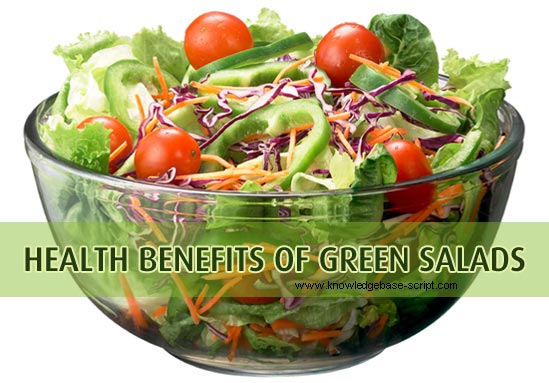Benefits of Salads
Salads are not only delicious but also incredibly nutritious. In this article, we will explore the numerous benefits of including salads in your diet. Salads are a versatile dish that can be customized to suit your taste preferences while providing a wide range of essential nutrients. Let’s dive into the amazing advantages of incorporating salads into your daily meals.
Rich in Nutrients
One of the key benefits of salads is that they are packed with essential nutrients. By including a variety of vegetables, fruits, and even proteins in your salad, you can ensure that your body receives a wide range of vitamins, minerals, and antioxidants. These nutrients are vital for maintaining overall health and well-being.
Weight Management
If you are looking to maintain or lose weight, salads are an excellent addition to your diet. They are low in calories and high in fiber, which can help you feel full and satisfied without consuming excessive calories. The fiber in salads also aids in digestion and promotes a healthy gut, which is essential for weight management.
Improved Digestion
Salads are rich in dietary fiber, which plays a crucial role in maintaining a healthy digestive system. Fiber adds bulk to your stool, preventing constipation and promoting regular bowel movements. Additionally, the high water content of vegetables and fruits in salads helps keep you hydrated, further supporting proper digestion.
Enhanced Hydration
Staying hydrated is essential for overall health, and salads can contribute to your daily fluid intake. Vegetables and fruits have high water content, which helps keep your body hydrated. By incorporating salads into your meals, you can boost your hydration levels and support various bodily functions.
Heart Health
Eating salads regularly can have a positive impact on your heart health. The combination of vegetables, fruits, and healthy fats, such as avocado or olive oil, in salads, can help lower cholesterol levels and reduce the risk of heart disease. The abundance of antioxidants in salads also supports cardiovascular health.
Increased Energy Levels
Salads are a fantastic source of complex carbohydrates, which are the primary fuel for your body. By including whole grains, legumes, or quinoa in your salad, you can provide your body with sustained energy throughout the day. Additionally, the vitamins and minerals in salads contribute to optimal energy production.
Boosted Immunity
The abundance of vitamins, minerals, and antioxidants in salads can strengthen your immune system. These nutrients help protect your body against various infections and diseases. By regularly consuming salads, you can give your immune system a natural boost and maintain a strong defense against illnesses.

Incorporating salads into your diet offers a multitude of benefits, including increased nutrient intake, improved digestion, weight management, and enhanced heart health. By including a variety of vegetables, fruits, and proteins in your salads, you can create a delicious and nutritious dish that supports your overall well-being. So, why wait? Start enjoying the benefits of salads today and take a step towards a healthier lifestyle!
Frequently Asked Questions about Benefits of Salads
1. Why are salads considered healthy?
Salads are considered healthy because they are typically made with fresh vegetables and leafy greens, which are rich in vitamins, minerals, and fiber. They are also low in calories and fat.
2. How do salads contribute to weight loss?
Salads can contribute to weight loss because they are low in calories and high in fiber, which helps you feel full and satisfied. They can also be a great way to incorporate more vegetables into your diet.
3. Are salads a good source of vitamins and minerals?
Yes, salads are an excellent source of vitamins and minerals. Leafy greens like spinach and kale are particularly rich in vitamins A, C, and K, as well as iron and calcium.
4. Can salads help improve digestion?
Yes, salads can help improve digestion. The high fiber content in vegetables and leafy greens can promote regular bowel movements and prevent constipation.
5. Do salads provide enough protein?
While salads are not typically a significant source of protein, you can add protein-rich ingredients like grilled chicken, tofu, beans, or nuts to make your salad more balanced and nutritious.
6. Can salads help reduce the risk of chronic diseases?
Yes, consuming salads regularly can help reduce the risk of chronic diseases. The antioxidants and phytochemicals found in vegetables and leafy greens have been linked to a lower risk of heart disease, certain cancers, and other chronic conditions.
7. Are salads suitable for people with dietary restrictions?
Salads can be adapted to suit various dietary restrictions. For example, those following a gluten-free diet can choose gluten-free grains or skip grains altogether. Vegans can create salads without animal products, and those with lactose intolerance can opt for dairy-free dressings.
8. Do salads provide enough energy?
Salads alone may not provide a high amount of energy, especially if they are low in carbohydrates or protein. However, you can add energy-dense ingredients like avocado, nuts, or whole grains to make your salad more filling and provide sustained energy.
9. Can salads help improve skin health?
Yes, salads can help improve skin health. The vitamins and antioxidants found in vegetables and leafy greens can promote healthy skin by reducing inflammation, preventing premature aging, and enhancing collagen production.
10. Can salads be a complete meal?
Yes, salads can be a complete meal if they are well-balanced and contain a variety of nutrients. Including a source of protein, healthy fats, complex carbohydrates, and a mix of vegetables can make your salad more satisfying and nutritious.




